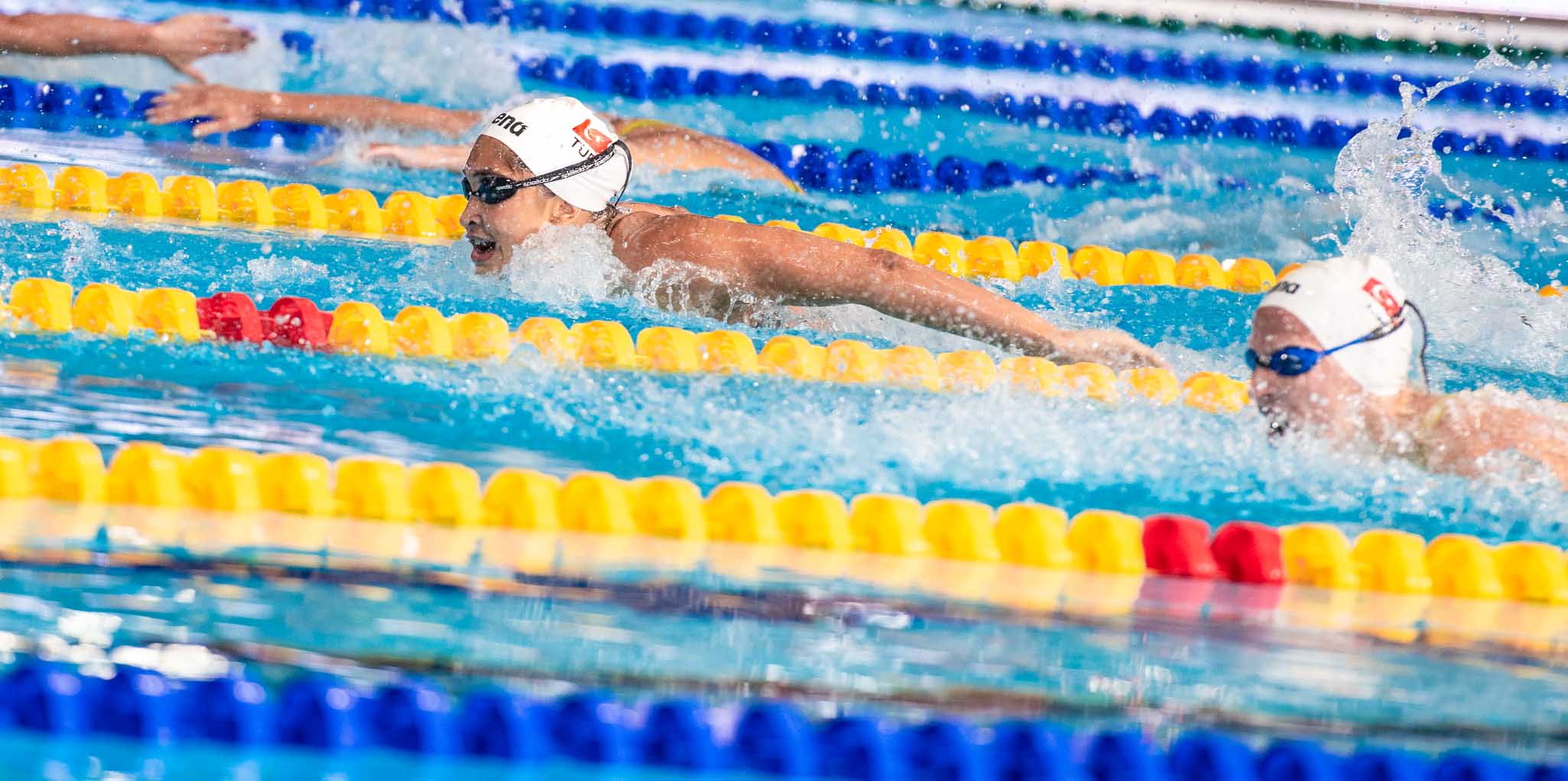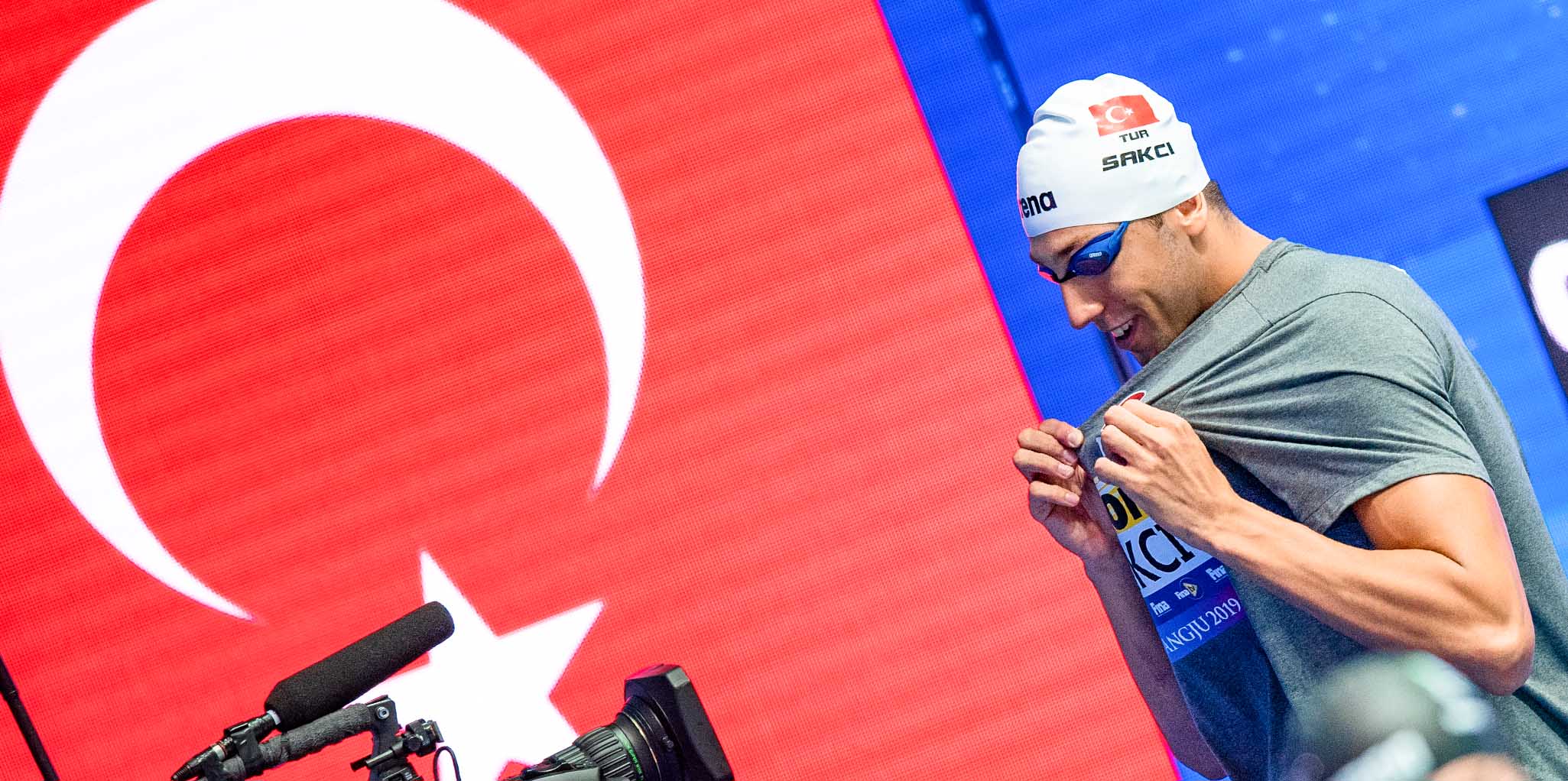The sport of swimming is becoming more competitive but also more diverse on an international level. The number of nations which were able to send swimmers into finals at World Championships and Olympic Games has been growing constantly over the past 20 years. Now one more player is trying to take on a bigger role in the game. But their eye is not set on short term goals.
"Our plan is to make Turkey a real swimming country within the next twelve years", Ibrahim Aksoy tells us. He is the responsible coach for the national women’s team and manager of the swimming school at his home club Fenerbahçe Istanbul. What might surprise: The latter is even more important to him than the performance group.
"Because if we don't create new talents now, there is nothing for me to do as national coach in ten years." This is also why he initiated a new project for the Turkish swimming federation aiming to create new talents at the base. A system of swimming schools standardized and managed by the federation is set to be rolled our over the whole country.
Indeed: Only 40 percent of the Turkish population knows how to swim. That's not a good starting point, if you want to create performance oriented athletes someday. But the swimming schools are not just meant to teach swimming for safety but also to to find young talents and show them the path into performance swimming.
"The goal is to strengthens our base", Ibrahim explains. "Otherwise all athletic kids will turn to basketball or volleyball, which are very popular in Turkey". The competition for talents between federations is not just unique to Turkey. In many countries young children, who like to be active, have lots of options for sports to invest their energy in. Swimming is one of these sports where you need to plant a seed early on to grow performance oriented athletes. Otherwise in later years it will be tough for the athletes to cope with the hard and intense training that is necessary to reach certain competitive levels. The passion for swimming needs to be rooted deeply. "If we can give these kids enough love for swimming, they won’t give it up for basketball or volleyball", the coach hopes.
"Our plan is to make
Turkey a real swimming country
within the next twelve years."
Ibrahim knows that it will take a long time for their plans to show results but during the past years he and his colleagues were able to also implement some changes with a more midterm effect. "We rolled out two strategies for our elite swimmers. One is based on individuality, the other one for perseverance."
Despite being head coach of the women’s team, not all fast Turkish swimmers have to train with Ibrahim, the coach explains. "That's not going to improve our sport." Instead they created a system of different funding levels for their top athletes. "Depending on their level every coach and athlete gets a budget, that they can use to work out their individual plans". These plans are run by the head coach in charge and further developed in collaboration with the home coaches. "This way we don't just improve our athletes but also our coaches and show them respect for their work."
Another issue that has been identified is a high dropout rate from athletes before they even got to their individual top level. So another focus during the past years was set on perseverance to keep older athletes in the game. "What matters most about this point is that the younger swimmer see the experienced athletes compete so they can learn from them and also so that they know: You don't have to stop swimming when you are 18 or 19 years old", Ibrahim says. "There is a big step between the junior and senior level. And many athletes used to not even try to make it. But now we are creating a culture, where the athletes stay with us and reach for their full potential. That's why we called this program 'Stars', to show the older athletes, how important they are."

Step by step, results are coming in. At the junior level we can see more Turkish athletes in finals and even on the podium. And also the seniors are making themselves known. Last year sprint specialist Emre Sakcı and Ümitcan Güreş stood on the podium at the European Short Course Championships in Glasgow. Small but noticeable successes like these also helped to convince the ministry of sport from the federation's plans. In a country, where the goverment plays a strong role as in Turkey it is hard to gain funding without having the public authorities on your site. "Before this Olympic cycle we used to have two A-Cuts for the Olympics in the history of Turkish swimming. Now we already have six A-Cuts for Tokyo", Ibrahim explains. "So now the ministry of sports is trusting us and working with us."
"Maybe we can send
some athlete into a final
and put Turkish Swimming on the map."
So the plans are made and strategies rolled out. Now it's time for the Turkish coaches and swimmers to follow their dreams. The next stop will be Tokyo. Ibrahim and his colleagues are seeing an opportunity in the postponement of the Olympic Game to 2021. "The additional year could help us. I think, we can get six more A-Cuts, so that we will be able to send up to twelve athletes to the Olympics and maybe even one relay", he hopes. "Our goal is not to get certain medals, but maybe we can send some athlete into a final and put Turkish Swimming on the map. And this will also help us with our long term goal to create a bigger base for swimming in our country." So let's keep our eyes open and maybe we will see some Turkish flags at the Olympic pool in Tokyo next year. And maybe even more in Paris, Los Angeles and at the games to come.

